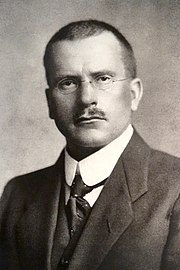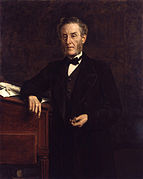Portal:Psychiatry
The Psychiatry Portal Psychiatry is the medical specialty devoted to the diagnosis, prevention, and treatment of deleterious mental conditions. These include various matters related to mood, behaviour, cognition, perceptions, and emotions. Initial psychiatric assessment of a person begins with creating a case history and conducting a mental status examination. Physical examinations, psychological tests, and laboratory tests may be conducted. On occasion, neuroimaging or other neurophysiological studies are performed. Mental disorders are diagnosed in accordance with diagnostic manuals such as the International Classification of Diseases (ICD), edited by the World Health Organization (WHO), and the Diagnostic and Statistical Manual of Mental Disorders (DSM), published by the American Psychiatric Association (APA). The fifth edition of the DSM (DSM-5), published in May 2013, reorganized the categories of disorders and added newer information and insights consistent with current research. Treatment may include psychotropics (psychiatric medicines) and psychotherapy, and also other modalities such as assertive community treatment, community reinforcement, substance-abuse treatment, and supported employment. Treatment may be delivered on an inpatient or outpatient basis, depending on the severity of functional impairment or risk to the individual or community. Research within psychiatry is conducted on an interdisciplinary basis with other professionals, such as epidemiologists, nurses, social workers, occupational therapists, and clinical psychologists. (Full article...) Selected articleIn the Soviet Union, a systematic political abuse of psychiatry took place and was based on the interpretation of political dissent as a psychiatric problem. It was called "psychopathological mechanisms" of dissent. During the leadership of General Secretary Leonid Brezhnev, psychiatry was used as a tool to eliminate political opponents ("dissidents") who openly expressed beliefs that contradicted official dogma. The term "philosophical intoxication" was widely used to diagnose mental disorders in cases where people disagreed with leaders and made them the target of criticism that used the writings by Karl Marx, Friedrich Engels, and Vladimir Lenin. Article 58-10 of the Stalin Criminal Code—which as Article 70 had been shifted into the RSFSR Criminal Code of 1962—and Article 190-1 of the RSFSR Criminal Code along with the system of diagnosing mental illness, developed by academician Andrei Snezhnevsky, created the very preconditions under which non-standard beliefs could easily be transformed into a criminal case, and it, in its turn, into a psychiatric diagnosis. Anti-Soviet political behavior, in particular, being outspoken in opposition to the authorities, demonstrating for reform, writing books were defined in some persons as being simultaneously a criminal act (e.g., violation of Articles 70 or 190-1), a symptom (e.g., "delusion of reformism"), and a diagnosis (e.g., "sluggish schizophrenia"). Within the boundaries of the diagnostic category, the symptoms of pessimism, poor social adaptation and conflict with authorities were themselves sufficient for a formal diagnosis of "sluggish schizophrenia." (Full article...) Selected image Mentally ill Scottish murderer Daniel M'Naghten, namesake of the M'Naghten rules image credit: public domain
WikiProjectsSelected biography The central concept of analytical psychology is individuation—the psychological process of integrating the opposites, including the conscious with the unconscious, while still maintaining their relative autonomy. Jung considered individuation to be the central process of human development. Jung created some of the best known psychological concepts, including the archetype, the collective unconscious, the complex, and synchronicity. The Myers-Briggs Type Indicator (MBTI), a popular psychometric instrument, was developed from Jung's theory of psychological types. Jung saw the human psyche as "by nature religious" and made this religiousness the focus of his explorations. Jung is one of the best known contemporary contributors to dream analysis and symbolization. Though he was a practising clinician and considered himself to be a scientist, much of his life's work was spent exploring tangential areas such as Eastern and Western philosophy, alchemy, astrology, and sociology, as well as literature and the arts. Jung's interest in philosophy and the occult led many to view him as a mystic, although his ambition was to be seen as a man of science. His influence on popular psychology, the "psychologization of religion", spirituality and the New Age movement has been immense. (Full article...) General imagesThe following are images from various psychiatry-related articles on Wikipedia.
Related portalsTopicsSubcategoriesAssociated WikimediaThe following Wikimedia Foundation sister projects provide more on this subject:
Discover Wikipedia using portals |
































